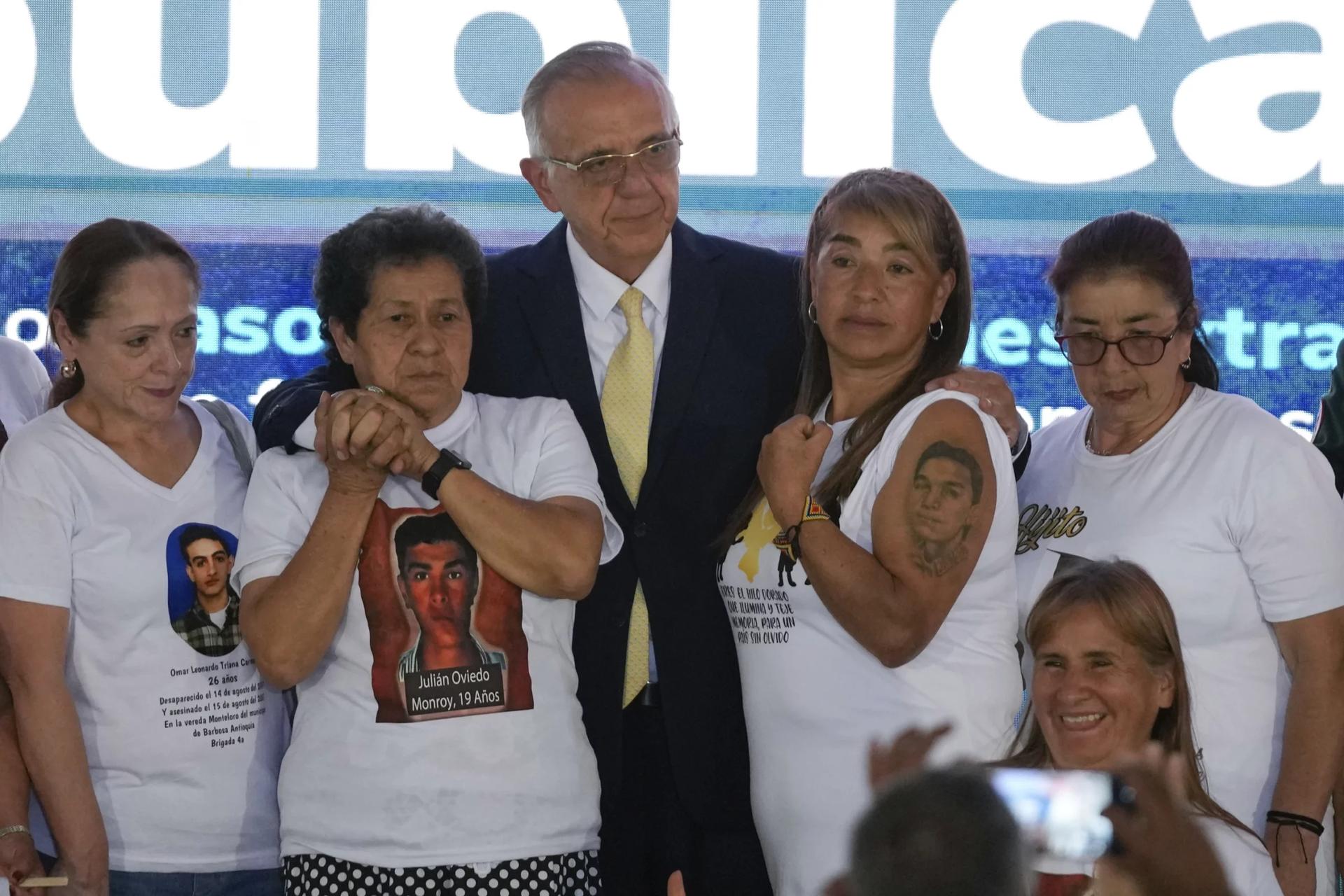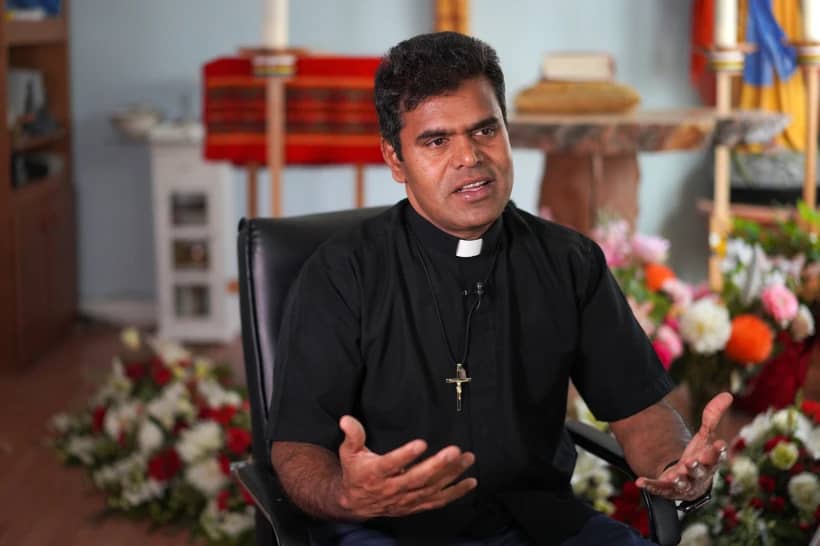SÃO PAULO, Brazil – Colombia’s Bishops’ Conference has a number of challenges amid a growing social and political polarization in the country and with the continuing menace of violence caused by insurgent groups.
The South American country’s prelates, gathered this week for their 117th plenary assembly, named Archbishop Francisco Múnera Correa of Cartagena as their new president.
Archbishop Gabriel Villa Vahos of Tunja will be the next vice president and Bishop Germán Medina Acosta of Engativá will be the new secretary general.
After the announcement, Múnera affirmed that the tough reality of Colombia cannot lead the Church to “pessimism,” given that “hope invites us to see as well all the potential of human talent that there is in this nation,” according to the news website of the Episcopal Conference of Latin America (CELAM).
Villa Vahos added that the 86 bishops gathered for the assembly have been debating the ways the Church will have to deal with the current scenario, especially with the themes of political polarization and peace.
“Faced with this panorama where there are signs of violence, we also discovered that there are many potentialities, many signs of hope, many working people,” he said.
The perception of political polarization in Colombia has been increasing year after year over the past decade. An Edelman report released in 2023 showed that it’s one of the six most polarized nations in the world, along with countries like the United States and Argentina.
The situation became even more serious since President Gustavo Petro took office in August of 2022. The first left-winger to rule the country in its republican history, Petro, who was a member of a communist guerrilla in his younger years, announced a number of reforms in Colombia – which he has not been able to advance until now.
“There has been a solid repudiation from the traditional elites, the right-wing, and the media to the current administration. In their campaign, fake news has had a continuous presence,” Ignacio Madera Vargas, a theologian at the Pontifical Xavierian University of Bogotá, told Crux.
Earlier this year, in April, hundreds of thousands of demonstrators took to the streets of Bogotá, Medellin, Cali, and other cities in order to protest Petro’s plan to boost reforms in the healthcare, education, labor, and pensions systems. Since then, the political atmosphere in Colombia has been growingly tense.
Analysts argue that the radicalization of the president’s opponents as well as his own reactions foreshadow the future presidential elections in 2026. The Congress has been blocking most of Petro’s proposals and he has not proven to be able to launch the social reforms that could change the historical social deficits in Colombia.
“One of the major tasks of the Church in such a critical context would be to establish a mediation between the distinct political forces, so the necessary reforms can be carried out,” Madera said.
He said many Colombians feel the need to change central elements in the country’s system, but those ways are now blocked.
“The Church would be an important agent in intervening in that battle without increasing the contradictions,” he added.
At the same time, part of the paralysis in Colombia seems to be connected with the continuous risks posed by the armed groups. For decades, the country has been suffering with the actions of communist guerrillas, right-wing paramilitary groups, and drug cartels.
The major guerrilla organization, the Revolutionary Armed Forces of Colombia (FARC) signed a peace deal with the government in 2016. Over the past years, another major group, the National Liberation Army (ELN), has been discussing peace with the government.
But dissident members of both organizations are still carrying out armed actions, at times involving the killing of police agents and attacks to public buildings. Civilians are impacted many times.
Drug cartels that dominate vast urban territories have also been a continuous threat to the population.
The Church has been facilitating the dialogue between the ELN and the government. Local peace talks involving several different agents have also been mediated by Church members.
“Despite such efforts, violence has been growing,” Madera said.
According to Heyner Hernandez, a theologian and university professor in Bogotá, the next heads of the Bishops’ Conference should work to improve the visibility of such work carried out by the Church.
“Members of the clergy have been playing a fundamental role in peace building, especially in the negotiations with the ELN. But it doesn’t appear to the public. The episcopate needs to give more visibility to its peace strategy,” he told Crux.
Hernandez said the effort to improve the Church’s public image also should include acting with more transparency to prevent and combat ecclesial abuse in Colombia.
“There’s a perception in society that the Church acted to cover up the abuse scandals that came to public attention. That’s something that the new Bishops’ Conference’s leaders should deal with in a more effective way,” he added.
Such problems could be addressed more easily if lay Catholics and communities could have more say in ecclesial life, Hernandez argued. A reform towards sinodality, following Pope Francis’s guidance, has to be launched by the Colombian Church in the near future, Hernandez said.
“For many Colombians, the Church is a place for old people, especially for elders who have hierarchical power. Measures have been taken to change it, but we need more,” he said.
Hernandez added less and less people look for a graduation in Theology, something that will impact the future number of ministers working in Colombia.
In part, those challenges are the same ones that the previous heads of the episcopate had to deal with, Hernandez affirmed. But now the situation seems to be more critical.
For Ignacio Madera, there’s no guarantee that the Colombian Church will be able to tackle such problems.
“Colombia used to have a clergy deeply committed to the country and to the poor. Now there’s a growing conservatism and many members of the hierarchy are not concerned with the necessary transformations that Colombia needs,” he said.












